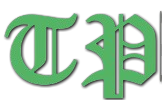Meta Platforms Inc., the parent company of Facebook, Instagram, and Threads, has announced sweeping changes to its content moderation policies. The company is scrapping its U.S. fact-checking program and reducing restrictions on contentious topics, marking a significant shift in its approach to managing political discourse. This move comes as President-elect Donald Trump prepares to assume office for a second term, signaling a potential effort by Meta to align with the new administration.
Key Changes in Meta’s Content Moderation Strategy
- End of Fact-Checking: Meta will no longer maintain its fact-checking program, which was established in 2016. Instead, the company is adopting a “Community Notes” system, a user-driven model similar to the one employed by Elon Musk’s social media platform, X (formerly Twitter).
- Reduced Oversight: The company will stop proactively scanning for hate speech and rule-breaking posts, instead reviewing flagged content based on user reports.
- Focus on Severe Violations: Automated systems will prioritize removing high-risk content, including terrorism, child exploitation, scams, and drug-related posts.
Meta CEO Mark Zuckerberg stated, “We’ve made too many mistakes and enforced too much censorship. It’s time to return to our roots of free expression.” He emphasized the role of recent U.S. elections in influencing this policy reversal, describing it as a “cultural tipping point” toward prioritizing open discourse.
Organizational Restructuring
In tandem with its policy overhaul, Meta plans to relocate its safety and content policy teams from California to Texas and other states. Although there are few specifics regarding the move, reports suggest that staff members have been kept in the dark about these changes, which has caused conjecture and anxiety within the organization.
Reactions to Meta’s Policy Shift
The decision to discontinue the fact-checking initiative has elicited mixed reactions. Partner organizations such as AFP and the International Fact-Checking Network expressed dismay, highlighting the importance of fact-checking in combating disinformation. “Fact-checking journalism provides context and debunks hoaxes; it doesn’t censor,” said Angie Drobnic Holan, head of the International Fact-Checking Network.
On the other hand, Trump welcomed the changes, commending Zuckerberg for the shift. “Meta has come a long way,” Trump stated, hinting that the changes may have been influenced by his previous criticisms of the company.
Global Implications
While these changes are limited to the U.S. market, Meta’s decision could have broader implications. The company’s fact-checking program will continue in regions like the European Union, which has stricter regulations under the Digital Services Act. The Act requires platforms to combat illegal content and disinformation, with non-compliance risking fines of up to 6% of global revenue.
Criticism and Future Prospects
Critics argue that Meta’s new approach prioritizes political appeasement over responsible content moderation. Ross Burley, co-founder of the Centre for Information Resilience, warned, “This is a step back for moderation, especially when harmful content is evolving rapidly.”
Meta plans to roll out the Community Notes system in the U.S. within the coming months, with improvements expected throughout the year. The success of this model will be closely watched, particularly as global scrutiny over content moderation intensifies.




